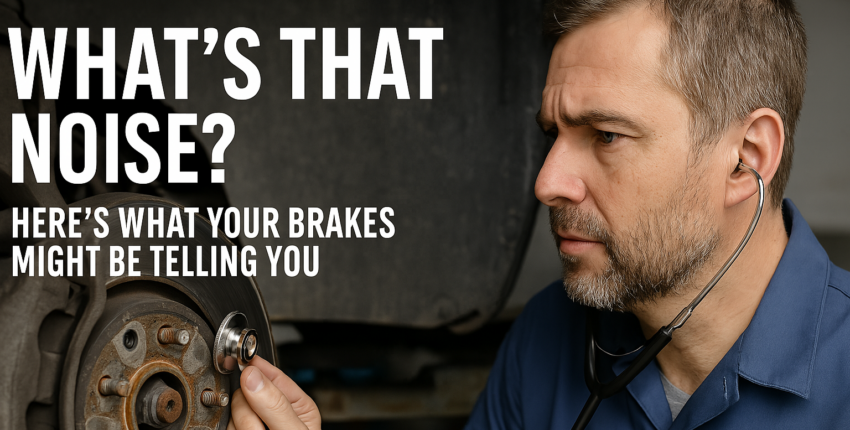We hear it all the time: “My brakes are making a weird noise. Is that bad?”
Short answer — probably. But not always.
Brake noise can mean a few different things. Some are no big deal. Others are a flashing neon sign that it’s time to get in for service.
Here’s a quick breakdown of what those noises mean and what you can do about them.
Squealing or Screeching
That high-pitched squeal when you hit the brakes? That’s often your brake pads wearing down. Most pads have a little metal tab that starts making noise when it’s time for replacement. It’s your car’s way of giving you a heads-up before it turns into a more expensive problem.
Grinding
Grinding is never good. If it sounds like metal-on-metal, it probably is metal-on-metal. That usually means the brake pads are completely gone, and now your rotors are taking the hit. If you hear grinding, stop driving and let us take a look.
Clunking or Thumping
Hearing a clunk when you brake? That can mean something’s loose, like the calipers or brake hardware. It might just be a worn-out part, but it’s definitely worth checking out. Remember, loose parts do not fix themselves.
Clicking or Rattling
Brake parts are supposed to stay snug and in place. If you hear clicking or rattling, something’s probably not secured right. Could be minor, could be more. Either way, it’s not something you want to ignore.
Brake Noise When It’s Cold or Wet
If your brakes squeak a bit first thing in the morning or after it rains, that’s usually just a little surface rust or moisture on the rotors. It should go away after a few stops. But if it doesn’t? Bring it in.
Driving Habits That Affect Brake Noise
Not all brake issues are mechanical. How you drive plays a big role in how your brakes sound and how long they last.
- If you ride the brakes or brake late and hard, your pads wear faster and heat up more often, which can lead to noise or warping.
- If you do a lot of stop-and-go driving or towing, your brakes are under more stress. Heat buildup leads to glazing, which can cause squeaks.
- If your car sits for long periods, moisture can build up on the rotors and cause rust, especially here in the Midwest. You know there’s a reason they call it the rust belt, right?
A little adjustment in driving style can go a long way toward quieter, longer-lasting brakes.
Other Signs It’s Time for a Brake Check
Noise isn’t the only signal your brakes send when something’s off. Here are a few other red flags:
- Your car pulls to one side when braking
- The brake pedal feels soft or spongy
- You feel vibrations or shaking in the steering wheel
- It takes longer than usual to come to a stop
- Your brake warning light is on (yeah, that’s not just for decoration)
If you’re noticing any of these, it’s a good idea to get things checked before they get worse (or more expensive).
Wrap-Up
If your brakes are making noise, don’t wait it out. Catching the issue early can save you money, time, and keep you safer on the road.
We’re happy to take a look and let you know what’s going on — no pressure, no scare tactics, just honest answers and quality work.

